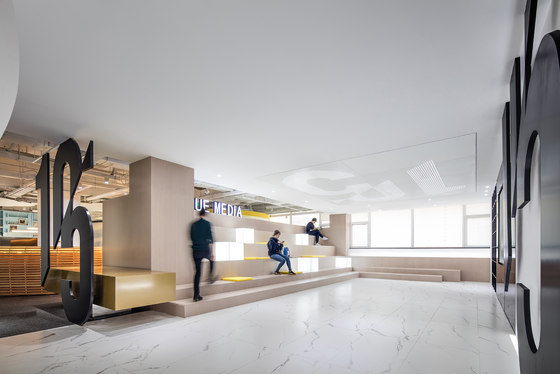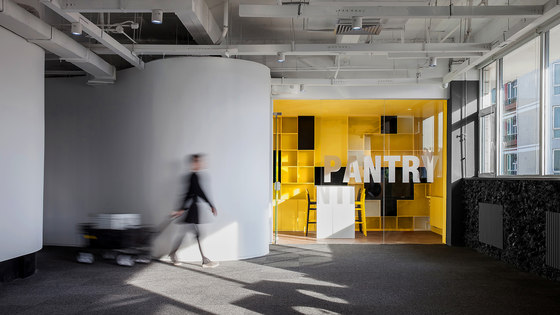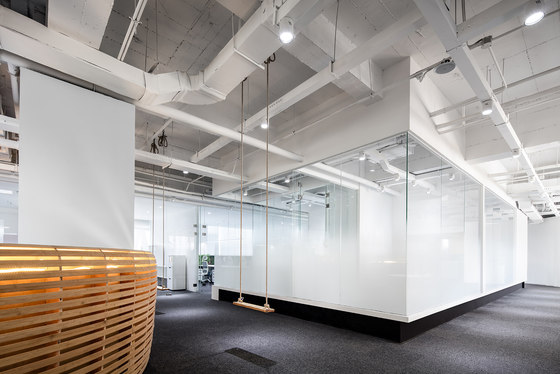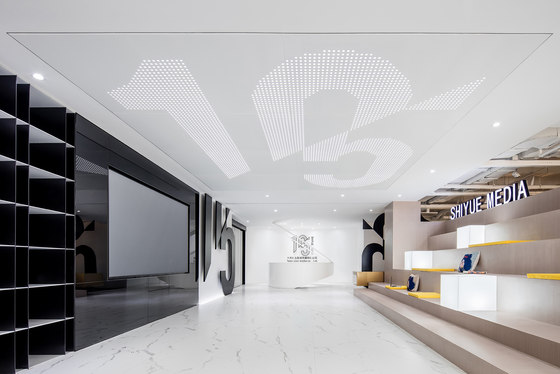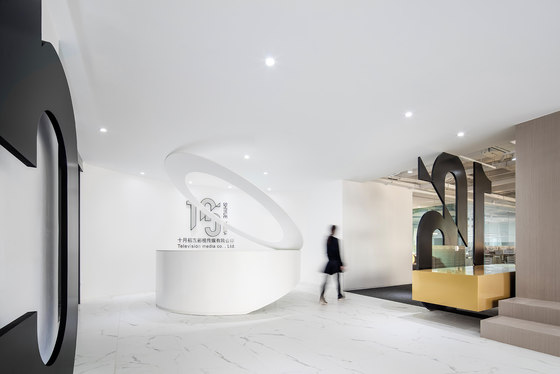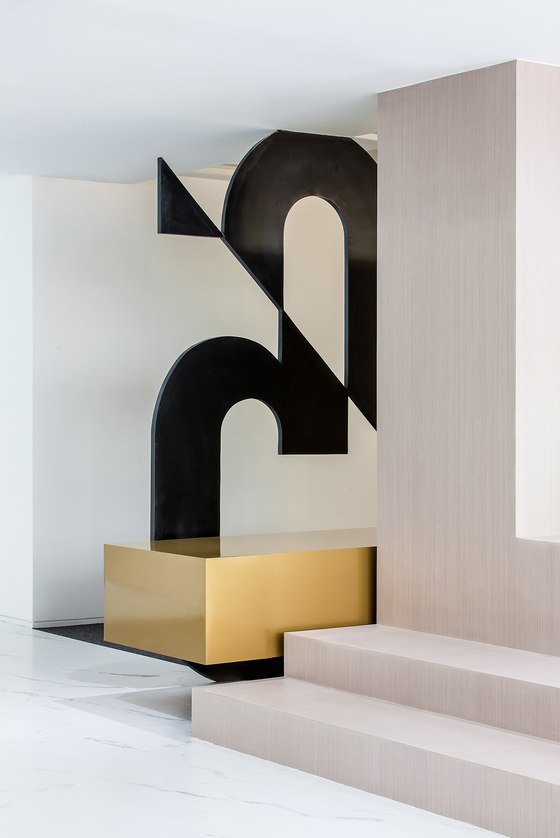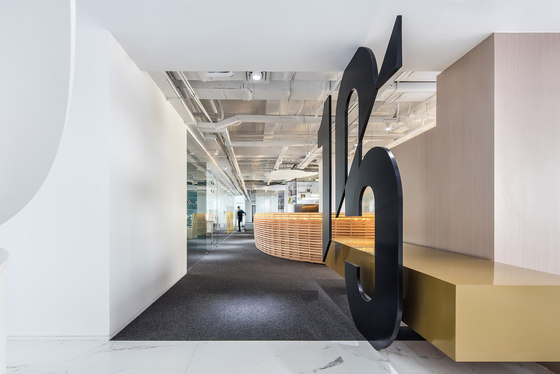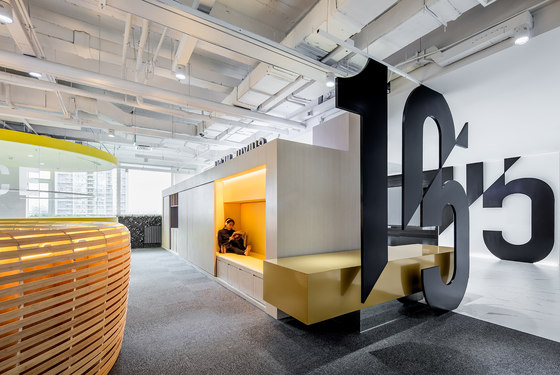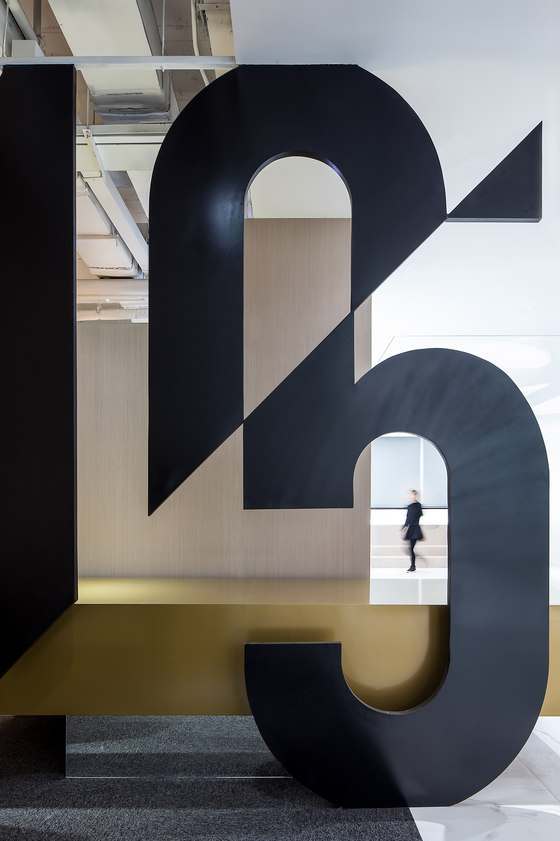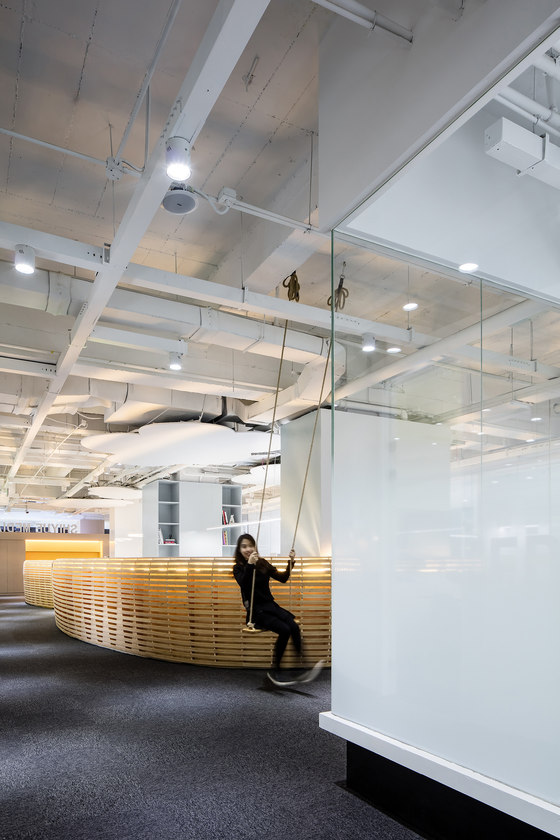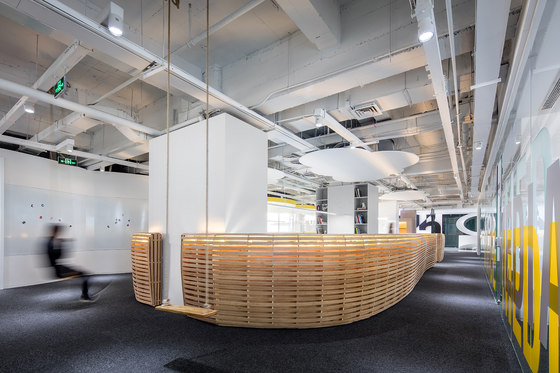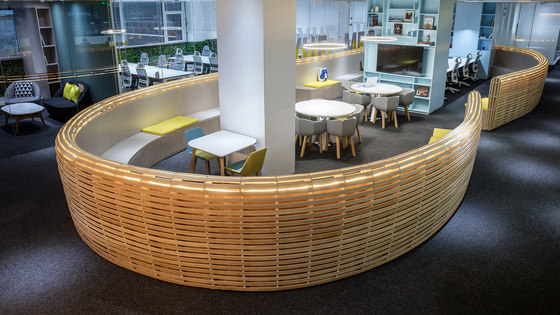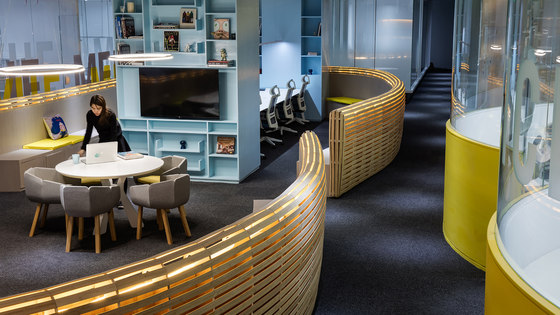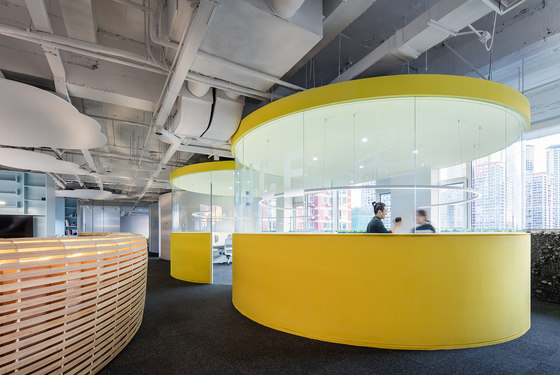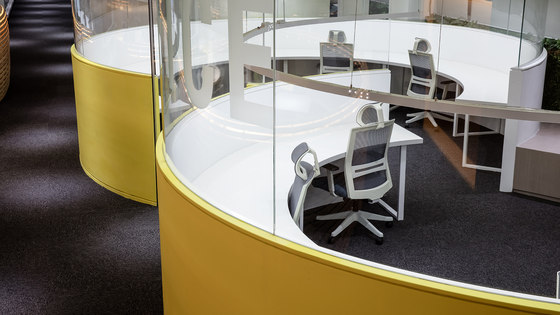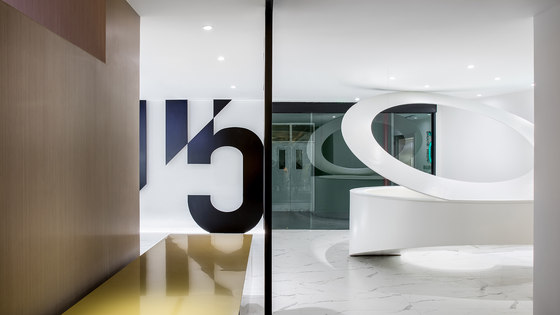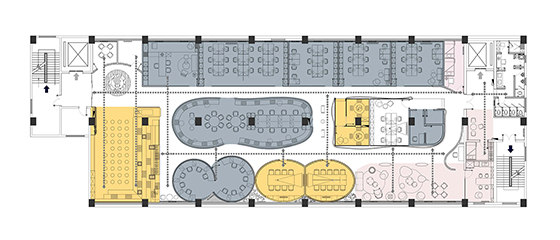In recently years, CUN Design has won a number of gold awards globally because of its unique thinking in the creative office environment design, making it become an unexpected force in this field. Especially that one of its projects was the only creative office environment in the world that was awarded as "Best of Year" in US. Through this achievement, an Internet celebrity from the new media industry—Mi Meng asked CUN Design to create a new office for her!
After several times of communication, CUN Design made friends with Mi Meng and her excellent team, and they found it was very interesting that most of Mi Meng's staffs are from the post-95s generation, and they don't treat their boss as a boss, but a friend. Therefore, we did not treat Mi Meng as our client, but instead, we took her friends' demands as hers. Nowadays, the Internet is developing extremely fast and mobile interconnection is penetrating through our lives! "Office" must not be a working space that just has several tables and computers! So that the following is the method and thinking in this design:
NO.1 Fuzzification
CUN Design thinks that more positions and more diversified people can find their own place through their design, and more importantly, find a space to rest their minds. Therefore, CUN Design tried to get rid of the boundaries and hard shapes in the overall design, which was very welcomed by the staffs. For example, there are not a lot of definitions in the spaces, and people will stay in the area they prefer and do their jobs efficiently.
NO.2. Receptiveness
CUN Design feels that different people at different ages and industries will have a relatively narrow demand for the environment, but each individual has different preferences. Based on this, CUN Design looked for similarities to complete the design. During the design process, CUN Design captured the major desires of Mi Meng and her young staffs, then wrote them all on paper and then categorized most of the similar ones, such as warm and active colors, relaxed atmosphere, rest place, a swing and so on.
However, some special requirements were also the most difficult parts, such as in Mi Meng's office, and how to arrange the entrance, sharing area and the lobby orderly became the key point of CUN Design's research. At last, CUN Design used a rest cabin to arrange the front area of the office. And a hill-shaped sharing area was created through the difference of height in the front area. The top-shaped reception desk links the ceiling and the floor, enhancing its function. The logo on the ceiling strengthens the company's temperament through its pattern. CUN Design paid more attention to its receptiveness to different people!
NO.3 Melting and Refreezing
CUN Design has been using the way of melting and refreezing in innovation. That is, every time they meet a conventional space, they would always break all the functional areas in the first place. For instance, does a meeting room must have conference table? Does an office must have furniture? Does the reception desk must be set at the entrance? Does the office environment must have partition? CUN Design melted all of these into the smallest unit modules, and then analyzed their own characteristics, and made new combinations according to the client's real demands, the modules' functions, as well as the enterprise's features!
When doing the space design, CUN Design did not simply design a beautiful space, but more importantly, they did more work and deeper thinking in the behind, so that they can achieve some new space forms that will be more suitable for the present, more suitable for the owner, and that are more vibrant and have more possibilities. This is the foundation of design, and through which the space can have unique temperament and characteristics. Therefore, this space belongs to Mi Meng and her young staffs. It is accurate and special, and more importantly, it's full of variability. All of these came from CUN Design's abandonment of experience. They melted functions and modules and then refroze them into a new thing.
For example, CUN Design melted the letters of the LOGO to make them become partitions, and melted and recombined the sharing area and rest cabin, and melted the front desk and the sharing area and refroze them into Mi Meng's space. They melted the interactive zone, entertainment area and mobile office and froze them into two bamboo office camps! They melted the small meeting rooms and brainstorm areas and refroze them into two working capsules! These will bring more efficiency and new experience to the office environment! The melting and refreezing method brings us a lot more possibilities!
NO.4 Young People in the New Media Field
Recently Douyin (a short-video app in China) becomes very popular, which seems to make people get rid of WeChat and falls into it. The new things are changing at a much faster rate than the traditional ones. So in a new professional new media people's space, in fact, the relationship among human, space and objects is relatively traditional and stable. But young people's handling of these relationships and their lifestyles are also changing!
For instance, the bicycles and bicyclists on the streets seem to have not changed, but the bikes are sharing bikes now, so there is a new relationship between them. This should also be a concern for designers. Designers should pay more attention to the changes in time and society, the new changes in new media industry, and the demands of younger customers. The space and people look similar, but design may bring completely different relationship between people and space, new production efficiency and new company culture.
Design Company: CUN Design
Space Design: Cui Shu
Participating Designer: Liu Xiaoyu
